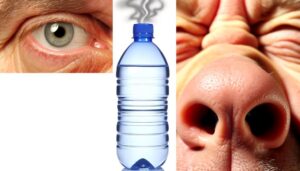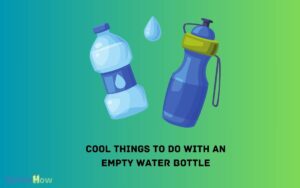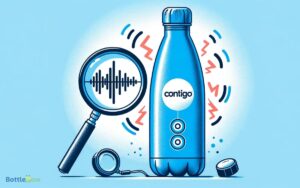Can a Dirty Water Bottle Give You a Sore Throat? Yes!
Yes, a dirty water bottle can give you a sore throat. When you don’t clean your bottle regularly, harmful bacteria like E.
coli and Staphylococcus aureus can build up. These pathogens thrive in moisture, especially in complex bottle designs that are hard to clean thoroughly.
Bacteria from your hands and mouth can easily transfer to the bottle, and uncovered bottles can collect airborne particles. This contamination can cause health issues, including sore throats and respiratory infections.
Regular cleaning with hot, soapy water can help prevent these problems. Stay tuned to discover more about maintaining a clean and safe water bottle.
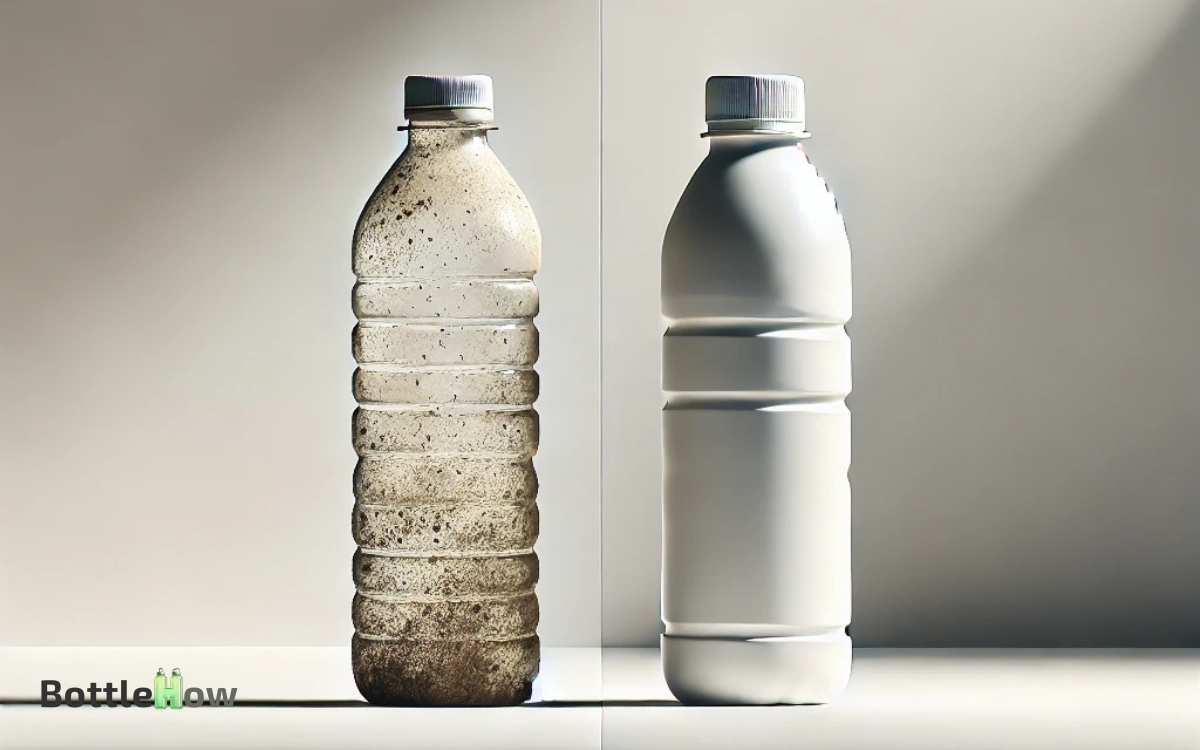
Key Takeaways
- Drinking from a dirty water bottle can introduce harmful bacteria, leading to a sore throat.
- Germs like E. coli and Staphylococcus aureus can proliferate in unclean water bottles, causing throat infections.
- Regular contact with a contaminated mouthpiece transfers bacteria that may result in sore throats.
- Biofilm formation inside dirty bottles protects bacteria, increasing the risk of throat infections.
Can a Dirty Water Bottle Cause a Sore Throat? Health Risks and Prevention
| Risk Factor | Description | Prevention Tips |
|---|---|---|
| Bacterial Buildup | Dirty bottles can harbor harmful bacteria like Staphylococcus or E. coli, which may lead to infections and sore throats. | Clean your water bottle daily with soap and warm water. |
| Mold Growth | Moist environments inside bottles can lead to mold, which can irritate the throat and cause infections. | Regularly scrub and air-dry your bottle to prevent mold. |
| Biofilm Formation | A layer of bacteria can form on the inside surfaces of the bottle, leading to potential health issues like a sore throat. | Use a bottle brush to scrub all surfaces thoroughly. |
| Contaminated Water | If the water source or filter in the bottle is contaminated, it can introduce harmful pathogens. | Always use clean, filtered water and replace filters as needed. |
| Cross-Contamination | Touching the bottle mouthpiece with dirty hands can transfer germs, leading to a sore throat. | Wash your hands before touching the bottle or mouthpiece. |
| Unwashed Mouthpiece | The mouthpiece can accumulate bacteria and germs, which may directly cause throat irritation. | Clean the mouthpiece daily with a brush or disinfecting wipes. |
Bacteria and Germs
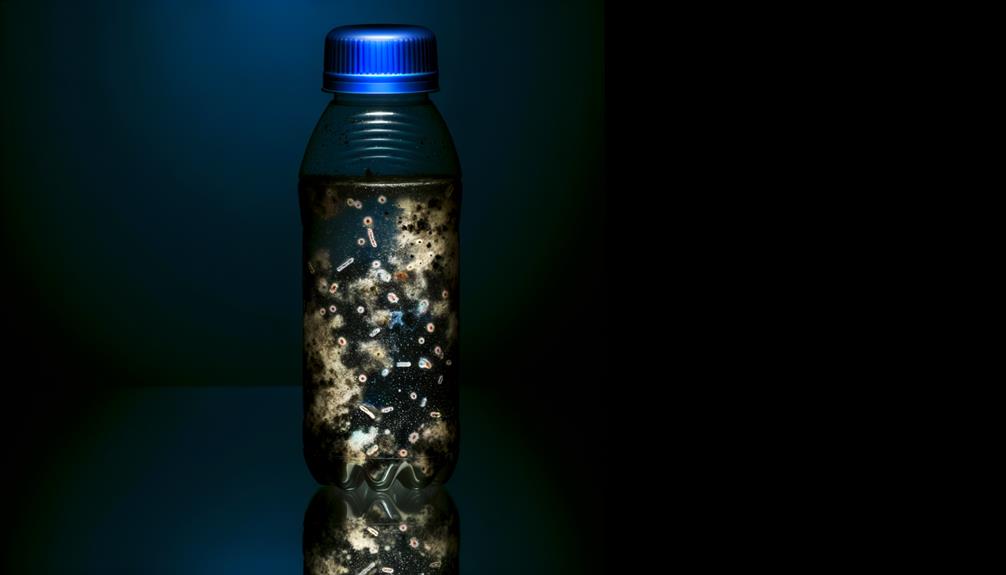
When you neglect to clean your water bottle regularly, bacteria and germs can rapidly multiply, posing health risks such as sore throats.
Studies indicate that reusable water bottles can harbor harmful bacteria, including E. coli and Staphylococcus aureus. These pathogens thrive in moist environments like water bottles, especially those with narrow openings and complex designs that make thorough cleaning challenging. If not cleaned regularly, these bacteria can multiply, increasing the risk of illness for users. In addition to bacteria, mold in plastic water bottles can also develop, particularly in hard-to-reach areas where moisture lingers. To prevent this, experts recommend washing bottles daily with hot, soapy water and allowing them to dry completely before reuse.
Research shows that inadequate cleaning can lead to bacterial biofilm formation, which further protects these microbes from simple rinsing. Consequently, each sip from an unclean bottle introduces these bacteria into your mouth, increasing the likelihood of infection.
Regular cleaning with soap and hot water can greatly reduce bacterial load, mitigating the risk of contracting a sore throat.
How Contamination Happens
Contamination occurs primarily through the introduction of bacteria from your hands, mouth, and environmental particles into the water bottle. Each time you touch the bottle’s mouthpiece or lid, you’re transferring bacteria from your skin.
Drinking directly from the bottle allows bacteria from your mouth to enter, promoting bacterial growth. Additionally, airborne particles and dust can settle inside if left uncovered, further increasing contamination risk.
Studies show that even a brief period of exposure to unclean environments can introduce harmful microorganisms. Regular cleaning and proper storage of your bottle are essential to prevent bacterial buildup.
Health Risks Involved
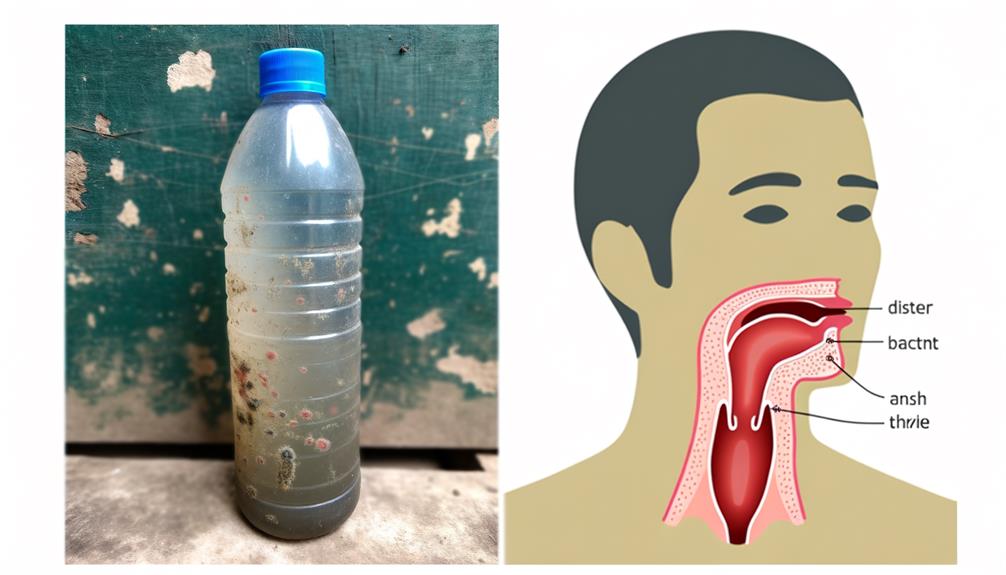
Understanding how contamination occurs is essential because a dirty water bottle can lead to various health risks, including sore throats caused by harmful bacteria. When bacteria proliferate in a moist environment like your bottle, you’re at risk for multiple infections.
Consider these health risks:
- Gastrointestinal Issues: Contaminated water bottles can harbor E. coli, leading to stomach cramps and diarrhea.
- Respiratory Infections: Inhaling or ingesting mold spores from an unclean bottle can cause respiratory issues.
- Skin Infections: Contact with bacteria-laden water can result in skin problems, especially if you have cuts or abrasions.
Cleaning Your Water Bottle
Regularly cleaning your water bottle is crucial for preventing bacterial growth and safeguarding your health.
Studies have shown that water bottles can harbor bacteria, including E. coli and Streptococcus, which can lead to infections and sore throats.
Cleaning your bottle daily with hot, soapy water removes these harmful bacteria. For thorough disinfection, consider using a solution of water and white vinegar or a diluted bleach mixture.
Make sure you scrub all parts, including the cap and any straws or mouthpieces. Rinse thoroughly to eliminate any cleaning residue.
By maintaining this hygiene routine, you’ll greatly reduce the risk of bacterial contamination.
Neglecting proper cleaning can lead to bacterial buildup, resulting in potential health risks.
Prioritize cleanliness to maintain peak health.
Tips for Prevention
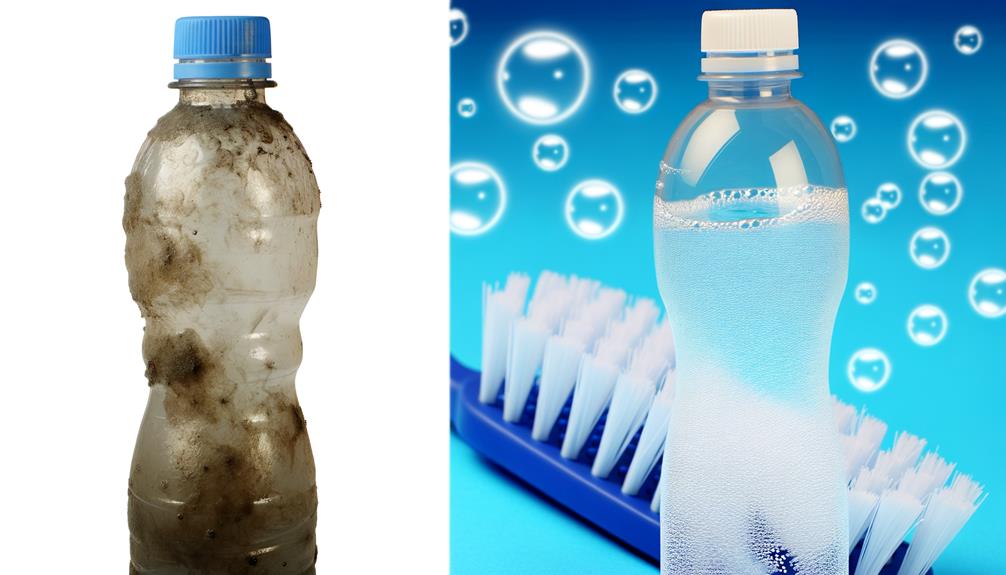
To prevent bacterial contamination, it’s vital to adopt a few key practices in your daily routine. Research shows that maintaining a clean water bottle can greatly reduce the risk of sore throat and other infections.
Here are three essential tips:
- Wash Daily: Clean your water bottle thoroughly with hot, soapy water every day. Use a brush to reach all areas.
- Air Dry: Let your bottle air dry completely after washing. Moist environments promote bacterial growth.
- Avoid Touching the Mouthpiece: Minimize contact with the mouthpiece to reduce germ transfer from your hands.
Conclusion
In summary, yes, a dirty water bottle can give you a sore throat.
When bacteria and germs accumulate, they pose significant health risks. Contamination can happen easily if the bottle isn’t cleaned regularly.
To protect yourself, make sure you’re washing your bottle thoroughly—think of it as your health’s 401(k).
Regular cleaning and diligent maintenance are essential in preventing infections and maintaining overall well-being.
Stay proactive to keep those germs at bay and your throat pain-free.



